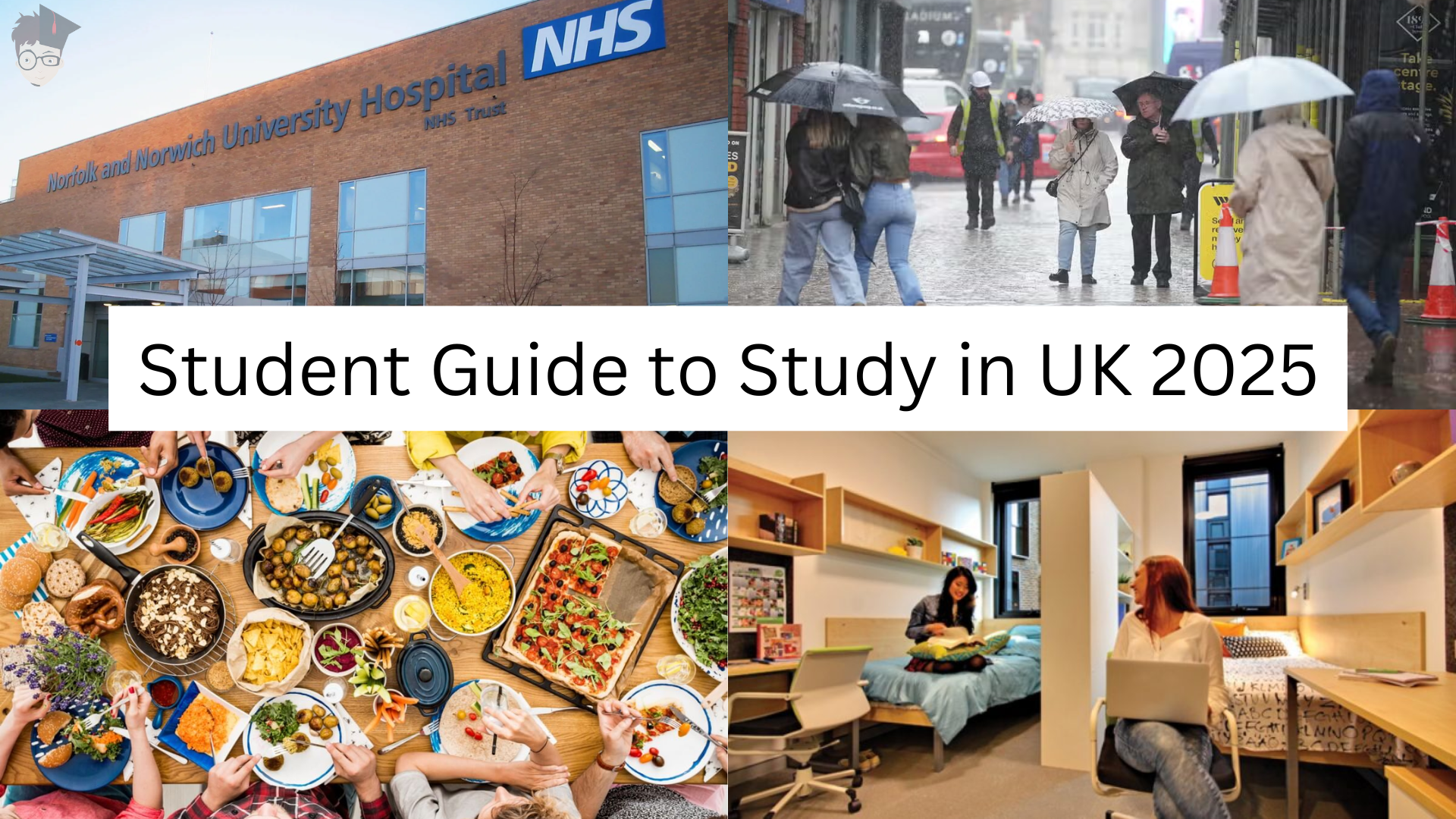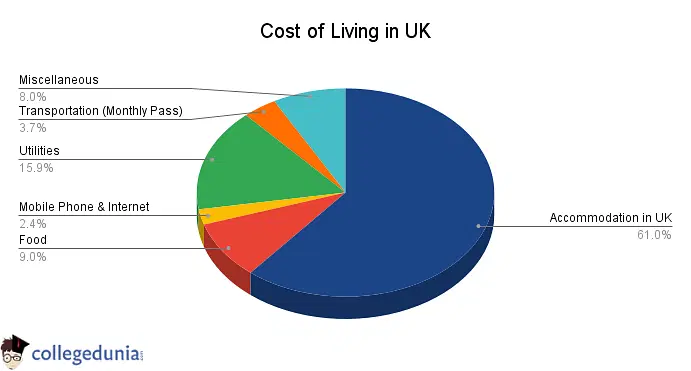.png?h=35&w=35&mode=stretch)
Yatin Kumar Study Abroad Content Specialist
Study Abroad Content Specialist
The United Kingdom is a prominent cultural hub in Europe, renowned for its academic excellence and vibrant, inclusive community that attracts international students from around the globe. With just 1% of the world’s population, the UK is responsible for an impressive 14% of the world’s most cited academic papers and 5% of global scientific research. This remarkable contribution underscores the UK's status as a leader in higher education.
Studying at top UK universities offers not only an internationally respected degree but also access to a rich tapestry of cultural and intellectual heritage. Institutions like Oxford and Cambridge have produced influential figures ranging from Nobel laureate Ernest Rutherford to celebrated writer Oscar Wilde. For aspiring students, the UK represents a unique opportunity to engage with groundbreaking ideas and a legacy of innovation.
Study in UK
Over the years, several UK universities have made their mark amongst domestic as well as international students. As per 2024 World Rankings by QS, around 81 universities of UK rank amongst the top 1000 in the world with the University of Cambridge being the top-ranking UK university. Listed below are the top 17 UK universities as per QS and THE:

| Name of the university | QS Ranking 2025 | THE Ranking 2025 |
|---|---|---|
| University of Cambridge | #5 | #5 |
| University of Oxford | #3 | #1 |
| Imperial College London | #2 | #9 |
| University College London | #9 | #22 |
| University of Edinburgh | #27 | #30 |
| University of Manchester | #34 | #51 |
| King’s College London | #40 | #38 |
| The London School of Economics and Political Science | #50 | #46 |
| University of Bristol | #54 | #81 |
| University of Warwick | #69 | #106 |
| University of Leeds | #80 | #129 |
| University of Glasgow | #78 | #87 |
| Durham University | #89 | #174 |
| University of Southampton | #80 | #97 |
| University of Birmingham | #80 | #101 |
| University of St. Andrews | #104 | #193 |
| University of Nottingham | #100 | #130 |
Student Life in UK
Moving away from home to live in a totally new country is both exciting and daunting. Home to some of the greatest cities in the world, United Kingdom is a diverse and multi-ethnic society. With over 450,000 international students, the country is known to welcome students from all backgrounds and nationalities. Tabulated below are the best student cities in UK for international students according to QS Best Students Cities Rankings 2025.
| QS Best Student Cities Ranking 2025 | UK City | Cost of Living (GBP per month) |
|---|---|---|
| #1 | London | £1,079.10 |
| #12 | Edinburgh | £893.90 |
| #25 | Manchester | £1,137.00 |
| #28 | Glasgow | £1,013.00 |
| #32 | Birmingham | £1,023.00 |
| #35 | Bristol | £1,186.50 |
| #37 | Nottingham | £972.00 |
| #40 | Leeds | £1,011.00 |
| #43 | Sheffield | £964.50 |
| #45 | Liverpool | £853.40 |
| #47 | Newcastle upon Tyne | £923.50 |
| #50 | Coventry | £1,025.00 |
| #52 | Aberdeen | £850.50 |
| #55 | Brighton | £1,576.00 |
| #58 | Belfast | £915.00 |
Living in UK
The section below provides insights on the various aspects of life in UK, from choosing the ideal accommodation to discovering different cuisines and figuring out the ins and outs of the British weather.
Accommodation
Most universities and colleges have dedicated accommodation services, your first point of contact for housing inquiries. Many universities offer housing options for international students, including residence halls with meal plans or self-catering facilities, as well as shared houses or flats.
- Staying with a Family: Staying with a local family can be delightful. You won’t need to worry about extra bills since everything is included in your rent. It also gives you the chance to learn about British culture and make local connections.
- Private Student Accommodations in the UK: Private student homes are popular due to their high-end facilities and independence. Students often share rooms and amenities to reduce costs. Depending on your budget, you can also opt for private studios.
Food
Many UK supermarkets now stock international food products, allowing you to gather with friends and prepare the dishes you love. Living among people from diverse backgrounds enables you to explore and taste a variety of new cuisines. If you choose to live in the university halls, you can benefit from the provided breakfast and dinner on weekdays.
Weather
While the weather in UK can be unpredictable, it rarely reaches extreme conditions.
- During summer, temperatures typically range from 9 to 18℃ (48–64℉), occasionally rising above 30℃ (86℉) during a heatwave.
- In winter, the average temperature is between 2 and 7℃ (36–45℉), with potential drops below 0℃ (36℉).
Health & Safety
The UK offers low crime rates, one of the best healthcare systems in the world, and a safe atmosphere for students. The NHS (National Health Service) in UK is globally recognized for its safe and secure medical services. To access the NHS, an immigration health surcharge is included in your visa application fee. The country maintains a safe atmosphere with a dependable police force, and many universities have their security services monitoring campuses.
Admissions in UK
Undergraduate applications to UK universities are usually made via UCAS (Universities and Colleges Admissions Service). Postgraduate applications usually are made straight to the university, commonly through the university website.
For studying in the UK as an international student, make sure to submit all the necessary documents before the stipulated deadline for early consideration. Properly go through university website course pages for details of how to apply and the eligibility criteria.
If you acquired your degree from outside the UK, you'd need to research your preferred university’s course entry conditions. Few universities have articles about this on their websites, or you can contact their administration for guidance.
Undergraduate Admissions
Applications for undergraduate courses are made via UCAS (Universities and Colleges Admissions Service).
- Select a Course: Choose a course and note down its UCAS code, which you'll need for your application.
- Write a Personal Statement: Highlight your excitement about the course, skills, and achievements.
- Reference: You’ll need a written recommendation from a tutor or teacher.
- UCAS Form: You can apply to up to five courses or universities using a single UCAS form.
- There are four application deadlines in the universities for Bachelors in UK in an academic year:
| Application Deadline | Course Types and Notes |
|---|---|
| 15 October | Courses at the Universities of Oxford and Cambridge, as well as for most courses in medicine, veterinary medicine/science, and dentistry. |
| 31 January (on time) | Most undergraduate courses. Ensure your application is submitted by this date for consideration. |
| March | Applicable for some art and design courses. Check specific requirements for your chosen program. |
| 30 June (late deadline) | Late deadline for most undergraduate courses. Applications received after this date will be placed in "clearing," and your first-choice placement is not guaranteed. Be sure to submit before this deadline. |
Postgraduate Admissions in UK
- Different postgraduate courses in UK may have unique entry requirements. Visit the specific websites of universities for Masters in UK to find instructions on how to apply. This ensures that you fulfil all the necessary criteria.
- When applying for postgraduate courses, you'll need to share your personal details, such as your name and background, along with information about your educational qualifications. Some other requirements include:
- Make sure to provide the contact details of a referee (lecturer or tutor) or a reference that supports your ability to pursue the postgraduate program.
- Craft a personal statement where you explain why you want to take this course. Share details about your skills, life experiences, and achievements that make you a suitable candidate for the program.
- Also, attach relevant documents such as your resume and proficiency test scores (e.g., IELTS, TOEFL, etc.) as part of your application.
- While many postgraduate courses don't have strict deadlines, it's advised to apply as soon as you decide to study in UK.
Language requirements in UK
If you want to study in the UK, your programme will be taught in English, so you must have a certain level of proficiency in order to perform your academic work. That’s why you will definitely need to meet certain English language requirements for UK universities. To do that, you have to take one of the approved tests and obtain the minimum score required by your university.
| Test | Minimum Score Required |
|---|---|
| IELTS | 6.0–6.5 (higher for some universities, up to 7.5) |
| TOEFL | 70–80 (up to 100 for top universities) |
| PTE Academic | A minimum score of 59 points for degree-level courses |
| DET (Duolingo English Test) | 95–100 points, equivalent to a 6.0 IELTS score |
Also Check: Exams to Study in UK
Living Expenses in UK
Navigating the cost of living is a crucial aspect of planning your academic journey in the UK. The section below provides all the expenses related to living in UK, including course fees, accommodation and grocery costs, and miscellaneous expenses.

Course Fee
| Course Level | Fee (GBP) | Fee (INR) |
|---|---|---|
| Undergraduate | 22,200 | 24.36 lakhs |
| Postgraduate | 17,110 | 18.77 lakhs |
Cost of Living in UK
The bifurcation of the living costs in UK is as follows.

| Particulars | Average Monthly Cost (GBP) | Average Monthly Cost (INR) |
|---|---|---|
| Accommodation in UK | 1,150 | 1.26 lakhs |
| Food | 170 | 18,655 |
| Mobile Phone & Internet | 45 | 4,938 |
| Utilities | 300 | 32,922 |
| Transportation (Monthly Pass) | 70 | 7,681 |
| Miscellaneous | 150 | 16,461 |
Miscellaneous Expenses
| Expense Type | Cost (GBP) | Cost (INR) |
|---|---|---|
| Application Fee | 50-150 | 5,487-16,461 |
| Immigration Health Surcharge (IHS) | 470 | 51,577 |
| Student Visa Fee | 490 | 53,772 |
| UCAS one-off application fee | 27.5 | 3,017 |
Scholarships & Financial Aid
Numerous scholarships in UK, financial aid, and grant programs are available for students requiring additional assistance to fund their studies. Many universities provide their own scholarships and financial support options, so it's recommended to visit the university's website for detailed information.
| Scholarships | Eligibility | Award |
|---|---|---|
| GREAT Scholarships | Enrolled in PG programs | Minimum 10,000 GBP |
| Chevening Scholarships | Enrolled in one-year PG programs | Fully-funded (flights, accommodation, and course fees are all included) |
| Commonwealth Scholarships | Applicant from Commonwealth countries | Enrolled in PG programs | Fully-funded: Tuition fee, Airfare, Stipend, Clothing allowance |
| Charles Wallace India Trust Scholarships | Indian students studying in arts, humanities or heritage conservation | Accommodation and living costs | Contribution of 700 GBP towards the international travel costs. |
| Sussex India Scholarships | Enrolled at eligible Masters courses of University of Sussex | 3,000 GBP |
| BK Birla Scholars Programme | MBA candidates at London Business School | Up to full tuition fee coverage |
| Hornby Trust Scholarship | Enrolled in Masters programs | Full fee waiver | Maintenance payment of 15,500 GBP per year |
Also Check: January 2025 Intake in UK
UK Student Visa
As an international student, you'll be required to have a visa with sponsorship from their chosen university to study in Britain, called a Tier 4 visa. Your visa shall have a permit for multiple entries into the nation. PG students may also bring dependent family members (your partner and kids under 18). The application fee for this visa when submitted outside the UK is 490 GBP (53,772 INR). You can find detailed information on the student route visa and available options at www.gov.uk/student-visa.

To apply for a UK student visa, formerly known as the Tier 4 visa:
- Schedule an appointment at a Visa Application Centre in your home country for fingerprinting and a photograph.
- The following are the documents needed to apply for a visa:
- Confirmation of Acceptance for Studies (CAS) reference number from your UK university or college.
- Proof of financial ability to cover your course fees and living expenses in UK.
- Original transcripts/certificates of your educational qualifications.
- Proof of your fluency over the English language- speaking, reading, writing, and comprehending.
- International students might be asked to attest they have sufficient capital to study in UK without demanding access to the public funds. You shall have enough money to fund your tuition fees for a year, plus an amount of £1,334/month (1.46 lakhs INR) for the first 9 months if your destination is London or £1,023/month (1.12 lakhs INR) for other cities in UK.
- Attend a visa application centre for fingerprinting and photo capture to obtain a biometric residence permit as part of your application.
- Collect your biometric residence permit within 10 days of the declared arrival date in UK, even if your actual arrival is later.
Work Permit in UK
After graduation, international students have several options to stay and work in the UK.
- Graduate Route: Allows you to stay in the UK for up to two years after completing your degree (three years for PhD graduates).
- Skilled Worker Visa: Requires a job offer with a salary of at least 20,960 GBP (23 lakhs INR) or 11 GBP/hour (1,200 INR/hour).
Also Check: Job Opportunities in UK for Indian Students
Pre-Departure List
Before leaving for the UK, make sure you have the following:
- Valid Passport (at least 12 months beyond your course duration)
- Pre-book accommodation or research nearby options.
- Documents:
- CAS statement
- Offer letter and acceptance confirmation
- Academic transcripts and certificates
- Financial proof
- Health insurance
- Personal Items:
- Birth certificate, driving license, vaccination records, prescriptions
- Electronics (laptop, phone charger), adapters, toiletries, bedding
- Clothing: Pack for the temperate climate—layers and waterproof items.
Studying in the UK offers a transformative experience that blends world-class education, cultural diversity, and a pathway to global career opportunities. From choosing accommodation and navigating daily expenses to mastering the visa process and finding scholarships, careful planning is key to making the most of your time in the UK. With a strong support system from universities and ample opportunities for both personal and professional growth, the UK remains a top choice for international students aiming to excel in their academic journey.
FAQs
Ques. What are the best cities for international students in the UK?
Ans. Cities like London, Edinburgh, Manchester, and Glasgow are popular for their vibrant student life, diverse cultures, and strong university presence.
Ques. How early should I start my UK student visa application process?
Ans. It's recommended to start the process at least 3 months before your course begins to account for any delays.
Ques. Can international students work part-time while studying in the UK?
Ans. Yes, students on a Tier 4 visa can work up to 20 hours per week during term time and full-time during holidays.
Ques. What is the Graduate Immigration Route, and how can I apply for it?
Ans. The Graduate Route allows international students to stay in the UK for up to two years after completing their degree to find work. You can apply after receiving your degree.
Ques. Do UK universities offer mental health support for international students?
Ans. Yes, most universities have dedicated mental health and counseling services available to support students during their studies.
Ques. How can I apply for health insurance as an international student in the UK?
Ans. Health coverage is provided through the NHS, and you can access it by paying the Immigration Health Surcharge (IHS) during your visa application.



1721213476.png?tr=w-305,h-145,c-force?h=40&w=40&mode=stretch)














1691582532.png?tr=w-305,h-145,c-force?h=175&w=350&mode=stretch)
1691580947.png?tr=w-305,h-145,c-force?h=175&w=350&mode=stretch)
1691488424.png?tr=w-305,h-145,c-force?h=175&w=350&mode=stretch)



Comments